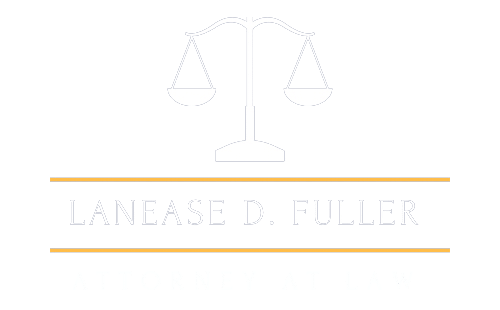Navigating the complexities of probate can be overwhelming, especially during a time of loss and emotional turmoil. As an experienced attorney in Houston, I, Lanease D. Fuller, aim to provide clarity on the probate process, explain how it can be avoided, emphasize the importance of estate planning, and highlight why you should start planning for your future now. Protecting your family from the probate process is not just a legal necessity; it’s an act of love and responsibility.
What is Probate?
Probate is a legal process that takes place after someone dies. It involves the validation of a deceased person’s will, if one exists, and the administration of their estate. The primary purposes of probate are to:
Ensure that the deceased’s debts and taxes are paid.
Distribute the remaining assets to the rightful heirs or beneficiaries.
In Houston, the probate process can be lengthy, costly, and emotionally draining. Understanding its components can help you grasp why avoiding probate might be beneficial.
Steps in the Probate Process
Filing a Petition: The probate process begins when an interested party, typically an executor named in the will or a close family member, files a petition with the court to open probate.
Validating the Will: The court must determine the validity of the will. This includes proving the will was properly executed and is the most recent will of the deceased.
Appointing an Executor or Administrator: If the will names an executor, the court usually appoints that person. If there is no will, the court appoints an administrator.
Inventory and Appraisal: The executor or administrator must inventory and appraise the estate’s assets. This step ensures that all assets are accounted for and properly valued.
Paying Debts and Taxes: The estate must pay any outstanding debts and taxes. This step can be complex and often requires professional assistance.
Distributing the Estate: After debts and taxes are paid, the remaining assets are distributed according to the will or, if there is no will, according to state law.
Challenges of Probate
Time-Consuming: Probate can take months or even years to complete, delaying the distribution of assets.
Costly: Probate involves court fees, attorney fees, and other administrative costs that can significantly reduce the estate’s value.
Public Exposure: Probate is a public process, meaning anyone can access the records and learn about the deceased’s assets and debts.
Emotional Strain: The probate process can be emotionally taxing for grieving families who must navigate legal complexities.
How Probate Can Be Avoided
Avoiding probate can save time, money, and stress for your loved ones. Several strategies can help you achieve this goal.
Living Trusts
A living trust is a legal document that places your assets into a trust during your lifetime and allows you to manage them as the trustee. Upon your death, the assets transfer to your beneficiaries without going through probate.
Benefits of a Living Trust
Avoids Probate: Assets in a living trust do not go through probate, allowing for a quicker and more private transfer to beneficiaries.
Continued Management: If you become incapacitated, a successor trustee can manage the trust assets, avoiding the need for a court-appointed guardian.
Flexibility: You can change or revoke the trust during your lifetime.
Joint Ownership
Holding assets in joint ownership with rights of survivorship means that when one owner dies, the surviving owner automatically receives the deceased’s share, bypassing probate.
Types of Joint Ownership
Joint Tenancy: Commonly used for real estate, each owner has an equal share, and upon one owner’s death, their share passes to the surviving owner(s).
Tenancy by the Entirety: Available in some states for married couples, it offers similar benefits to joint tenancy with additional creditor protection.
Community Property with Right of Survivorship: In Texas, this option allows married couples to own property jointly with automatic transfer to the surviving spouse.
Beneficiary Designations
Certain assets allow you to name a beneficiary who will receive the asset upon your death, avoiding probate.
Examples of Assets with Beneficiary Designations
Life Insurance Policies: Naming a beneficiary ensures the proceeds go directly to them without probate.
Retirement Accounts: Designate beneficiaries for IRAs, 401(k)s, and other retirement accounts.
Payable-on-Death (POD) Accounts: Bank accounts can be designated as POD, transferring to the named beneficiary upon death.
Transfer-on-Death (TOD) Securities: Stocks, bonds, and other securities can have TOD designations.
Small Estate Affidavit
In Texas, if the value of the estate is below a certain threshold and meets specific conditions, heirs can use a Small Estate Affidavit to transfer assets without formal probate.
Lady Bird Deed
A Lady Bird Deed, or Enhanced Life Estate Deed, allows you to transfer real estate to beneficiaries while retaining the right to use and control the property during your lifetime. Upon death, the property passes to the beneficiaries without probate.
The Importance of Estate Planning
Estate planning is essential for ensuring your wishes are honored, your assets are protected, and your loved ones are cared for after your passing. It involves creating a comprehensive plan that addresses your financial and personal affairs.
Key Components of an Estate Plan
Will: A legal document that outlines how your assets should be distributed upon your death and names an executor to manage your estate.
Trusts: Legal entities that hold assets on behalf of beneficiaries, offering various benefits like probate avoidance, tax savings, and protection for minor children.
Powers of Attorney: Legal documents that designate someone to make financial or medical decisions on your behalf if you become incapacitated.
Healthcare Directives: Documents that specify your healthcare preferences and appoint someone to make medical decisions for you if you cannot.
Beneficiary Designations: Ensuring all beneficiary designations on accounts and policies are up to date and aligned with your estate plan.
Letter of Intent: A document that provides instructions to your executor or beneficiaries about your wishes, including funeral arrangements and other personal matters.
Benefits of Estate Planning
Control: Estate planning gives you control over how your assets are distributed and who will manage your affairs.
Protection: Protects your beneficiaries from unnecessary legal battles, taxes, and delays.
Minimize Taxes: Proper planning can minimize estate taxes and other costs.
Peace of Mind: Knowing that your affairs are in order and your loved ones are provided for can bring significant peace of mind.
Why You Should Start Planning for Your Future Now
Estate planning is not just for the elderly or the wealthy; it is essential for everyone. Here’s why you should start planning for your future now.
Uncertainty of Life
Life is unpredictable, and unexpected events can happen at any time. Planning ensures that your affairs are in order, regardless of what the future holds.
Protecting Minor Children
If you have minor children, estate planning allows you to designate guardians who will care for them if something happens to you. Without a plan, the court will decide who takes care of your children, which might not align with your wishes.
Avoiding Family Disputes
Clear and legally binding instructions about your wishes can prevent family disputes. Without an estate plan, your family might face disagreements and conflicts over your assets.
Financial Security for Loved Ones
Proper planning ensures that your loved ones are financially secure and that your assets are distributed according to your wishes. This can include setting up trusts for children, providing for a spouse, or supporting charitable causes.
Cost Savings
By planning ahead, you can reduce the costs associated with probate, taxes, and legal fees. An effective estate plan can save your estate money and maximize the inheritance for your beneficiaries.
Health and Incapacity Planning
Estate planning is not just about what happens after you die; it’s also about making sure your wishes are followed if you become incapacitated. Powers of attorney and healthcare directives ensure that trusted individuals can make decisions on your behalf.
Preserving Your Legacy
An estate plan allows you to leave a lasting legacy, whether through charitable donations, educational funds for grandchildren, or preserving family heirlooms.
Estate Planning Attorney in Houston Area
Protecting your family from the probate process in Houston involves understanding probate, exploring ways to avoid it, and recognizing the importance of comprehensive estate planning. Starting your estate planning now ensures that your assets are protected, your wishes are honored, and your loved ones are cared for in the future.
Estate planning is a critical step in safeguarding your family’s financial future and minimizing the emotional and financial burdens that probate can impose. By taking proactive measures, you can ensure that your legacy is preserved, and your family is spared unnecessary stress and expense.
As your attorney, I am here to guide you through every step of this process with personalized attention and expertise. Together, we can create a tailored estate plan that meets your unique needs and goals, providing you with peace of mind. Don’t wait until it’s too late—take control of your legacy today.
Contact my office to start your estate planning journey and secure the future for you and your loved ones. By acting now, you can rest assured that your family will be protected and your wishes will be honored.
LANEASE D. FULLER LAW
4615 S. Frwy St. 820
Houston, TX 77051
713-439-7400
Google Listing


